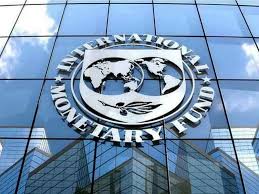
The International Monetary Fund (IMF) has just wrapped up its 2025 Article IV consultation with Nigeria, and there’s some cautiously optimistic news on the economic front. The IMF is projecting a 3.4% expansion in Nigeria’s real GDP for the year, offering a slightly brighter outlook than its April forecast of 3%.
This yearly assessment, known as the Article IV consultation, is the IMF’s way of checking in on a country’s economic health and policies, offering insights and recommendations along the way.
The organisation says the 3.4% growth estimate is being driven by improvements in oil production, a newly operational domestic refinery, and a strong services sector. Looking beyond 2025, the IMF expects Nigeria’s economy to maintain growth at around 3.5% over the medium term, especially if ongoing reforms continue to gain ground.
Still, the IMF notes that while this growth is welcome, it’s not fast enough to make a significant dent in poverty levels, an issue that continues to affect nearly half of Nigeria’s population.
A Call for Balanced Policies and Social Protection
In its report, the IMF emphasised the importance of Nigeria adopting a neutral fiscal stance, essentially not overspending or underspending, to keep the economy stable. At the same time, the IMF urges the government to prioritise growth-boosting investments.
One area the Fund wants Nigeria to move faster on? Direct cash transfers to the most vulnerable. It says accelerating these payments is critical to helping those hit hardest by economic challenges.
Praise for Tax Reforms and Banking Sector Developments
The IMF had positive words for the Nigerian government’s recent steps on tax reform. It commended the passage of four tax-related bills signed by President Bola Ahmed Tinubu, calling them an important move toward raising more revenue and freeing up funds for development spending, all while keeping debt under control.
It also welcomed the efforts to strengthen the country’s banking system, especially the move to raise banks’ minimum capital requirements. According to the IMF, these steps, along with ongoing efforts to promote financial inclusion and deepen the capital markets, are good signs. However, it also stressed the need for a more robust, risk-based supervision system — especially in areas like mortgages, consumer lending, fintech, and cryptocurrencies.
Other Key Recommendations
To truly unlock Nigeria’s economic potential, the IMF outlined several other key areas that need attention:
Security: Addressing ongoing insecurity remains critical.
Red tape: Cutting unnecessary bureaucracy would make it easier to do business.
Agriculture: Increasing productivity in farming can improve food security and reduce poverty.
Infrastructure: Closing infrastructure gaps, especially improving electricity access, is a top priority.
Health and Education: Greater investments in these sectors are essential for long-term growth.
Credit Access: Making it easier for businesses to access credit is vital for boosting private sector activity.
The IMF also welcomed Nigeria’s efforts to build better capacity in public institutions and stressed that improved data quality will be essential for making smart, evidence-based decisions moving forward.












Leave a Reply